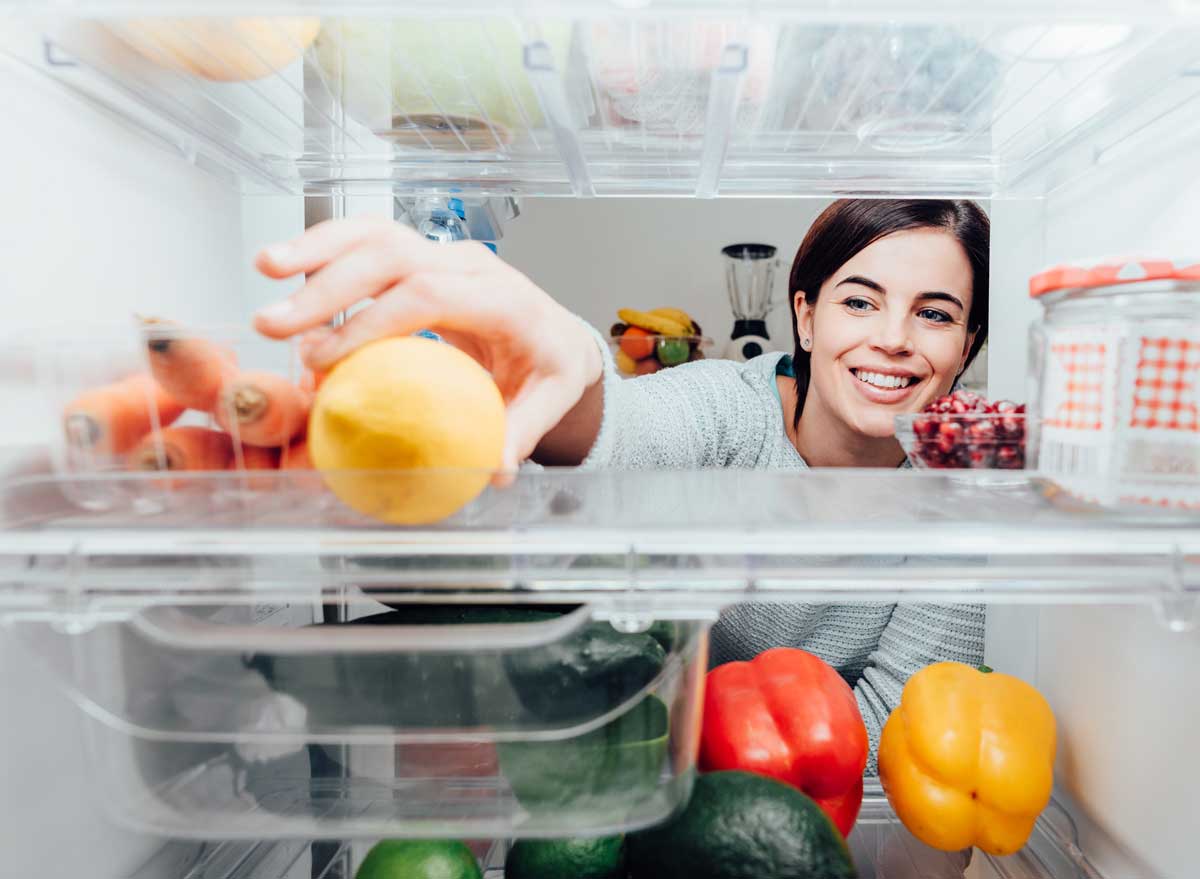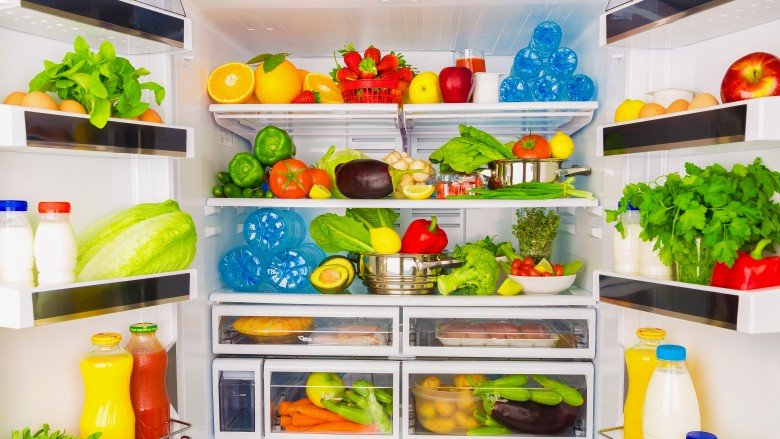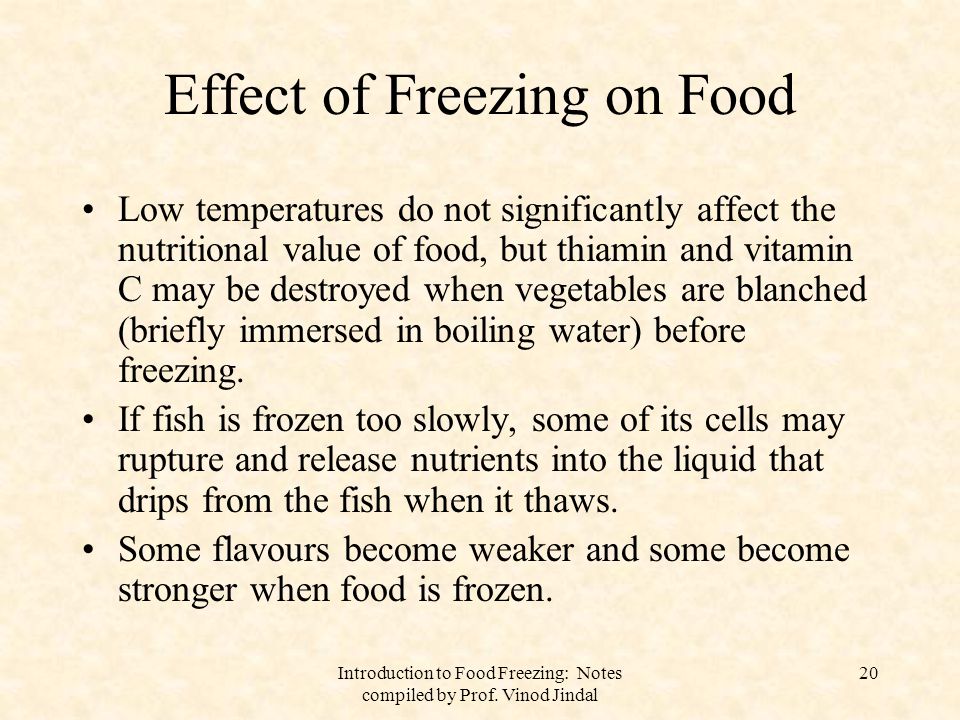Refrigeration is one of the best ways to ensure the freshness of food. When food is stored inside a refrigerator, its temperature is kept at a minimum of 2 °C (36 °F), which prevents the growth of food-borne pathogens like Salmonella and E. Coli. In fact, refrigeration speeds up the process of spoiling food because it inhibits the growth of microorganisms.
Unfortunately, not everyone knows that freezing food has adverse side effects. It can actually cause harm to the food, especially when it comes to the nutrients contained in it. However, not all frozen foods have harmful properties. In this article, we discuss why and how frozen food needs to be refrigerated after it has been used.
For Short Time Readers
Why Juice Needs To Be Refrigerated After Opening?

The reasons why food needs to be refrigerated after use are as follows:
- The food has reached its optimal temperature for long-term storage.
- The food has been completely cooked and cooled to the desired temperature for storage.
- The food is covered and protected from the air.
- The food is kept at a constant temperature.
- The food is stored in a dry place.
- The food is not exposed to extreme temperature variations (e.g., changes in light conditions, dampness).
Why Does Refrigeration Harm Food?
Refrigeration affects all food items, especially fruits, vegetables, and meat. Here are some of the harmful effects of refrigeration on fruits, vegetables, and other vegetables:
Reducing the Oxygen Level in Produce: The process of “freezing” fruits and vegetables reduces the amount of oxygen in the fruits and vegetables, which can lead to the loss of valuable nutrients. This, in turn, causes the product to become tasteless, and it is generally sold as “not fresh”.

Loss of Vitamin C: The water-rejected part of the fruit, called the “c” part, is the most important vitamin for human health. However, when fruits and vegetables are “frozen”, the water is removed, and only the “c” part is left in the food. As a result, vital vitamin C is lost. – Lower Oxygen Content in Meat: The “O” part in meat, which is the part that determines the flavor and quality of the meat, also gets “frozen”. This usually happens during the cooking process, when the animal is killed and its meat processed.
Color Mismatches: When fruits and vegetables are “frozen”, their color is changed to something more suitable for storage. This means that the yellow color in carrots is replaced by more attractive white carrots and red apples are replaced by green apples. However, the vitamins and other nutrients are still lost when these food items are frozen, so it’s definitely not a “freeze-dried” product.
Loss of Taste: When food items are “frozen”, their taste is prevented from changing because the water is retained. However, this does not mean that the food is “tasteless”.
Dryness: The last possible side effect of freezing is dryness. This means that the food items lose moisture from their structure and color, becoming less nutritious.
Thawing: Refreezing means returning the frozen food to its original state. This is usually done when the conditions are not proper for freezing (e.g., the food is not stored in a freezer), or the food is still inside the frozen state (i.e., it’s not thawed).
Cooking: Cooking food at a high temperature, usually for a short amount of time, often in an oven or hotplate, is usually sufficient to get rid of the harmful effects of freezing.
The Effects of Freezing on Food

When food is frozen, it is essentially deprived of its nutrients. During the freezing process, the food loses water and volume, and its nutrients are released as heat.
However, when the food is thawed, these nutrients are able to re-enter the food and are available for the body to use. The following are some of the harmful effects of freezing for food:
Loss of Nutrients: The most significant loss that happens during the freezing process is water and the nutrients that are contained in it.
Reducing the Oxygen Level in Produce: Water is essential for all living organisms; however, when fruits and vegetables are “frozen”, the water is removed from them, and they are deprived of important nutrients. This can lead to a loss in the fruit’s flavor and health benefits.
Lower Oxygen Content in Meat: The “O” part in meat also gets “frozen” during the freezing process. This is usually due to overcooking, which can happen when meat is frozen.
Color Mismatches: When fruits and vegetables are “frozen”, their color is changed to something more suitable for storage. This means that the yellow color in carrots is replaced by more attractive white carrots and red apples are replaced by green apples. However, the vitamins and other nutrients are still lost when these food items are frozen, so it’s definitely not a “freeze-dried” product.
The Pros of Refrigeration
The pros of refrigeration include the following:
- Preventive: Refrigeration prevents the growth of harmful bacteria and keeps the food fresher for longer periods of time.
- Expenses: Refrigeration costs less than freezers because it does not require electricity or running costs.
- Environmental: Refrigeration does not require electricity, space, or expensive equipment.
- Health Benefits: Research has found that eating fresh produce can reduce the risk of cancer and heart disease.
- Taste: When food items are “refrigerated”, they lose the natural flavors and spices that come from the water, so they are tasteless.
- Easy clean up: Refrigeration is easy to clean up because all you have to do is pour out the water and you are done!
:max_bytes(150000):strip_icc():format(webp)/Counter-depth-refrigerators-1908655_color_rev-46b113bfc76342adb5229392159291df.jpg)
The Cons of Freezing
The cons of freezing include the following:
- Expenses: Refrigeration is expensive because you have to buy electricity and food.
- Lack of Nutrient Content: The major shortcoming of freezing is that it deprives the food of essential nutrients.
- Bacteria: Bacteria can get into the food through the freezing process. If you are not careful, they can grow and produce toxins that are harmful to your body.
- Change in Taste: All foods are susceptible to change when they are “frozen”, but the taste of fruits and vegetables is significantly altered when they are “thawed”.
The Bottom line
The bottom line of all of this is that you need to know the benefits of refrigeration and the cons of freezing before you make a decision on which method to use for your own food storage needs. Avoid eating out if possible because many times the menu will not include fresh, hot food. If you must eat out, go for menu items that are naturally refrigerated and prepared just as they would be served at home. When in doubt, stick to the basics such as fresh vegetables




